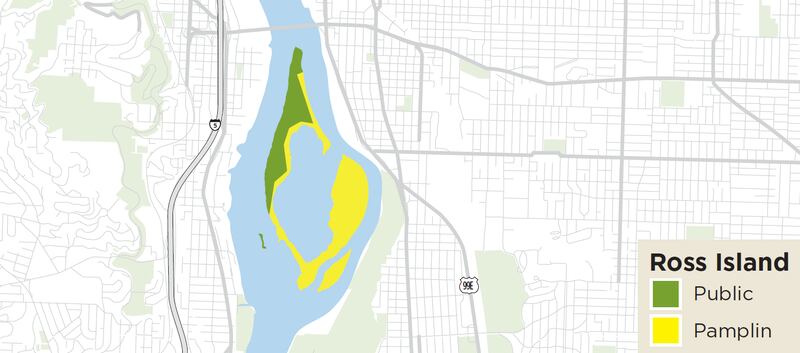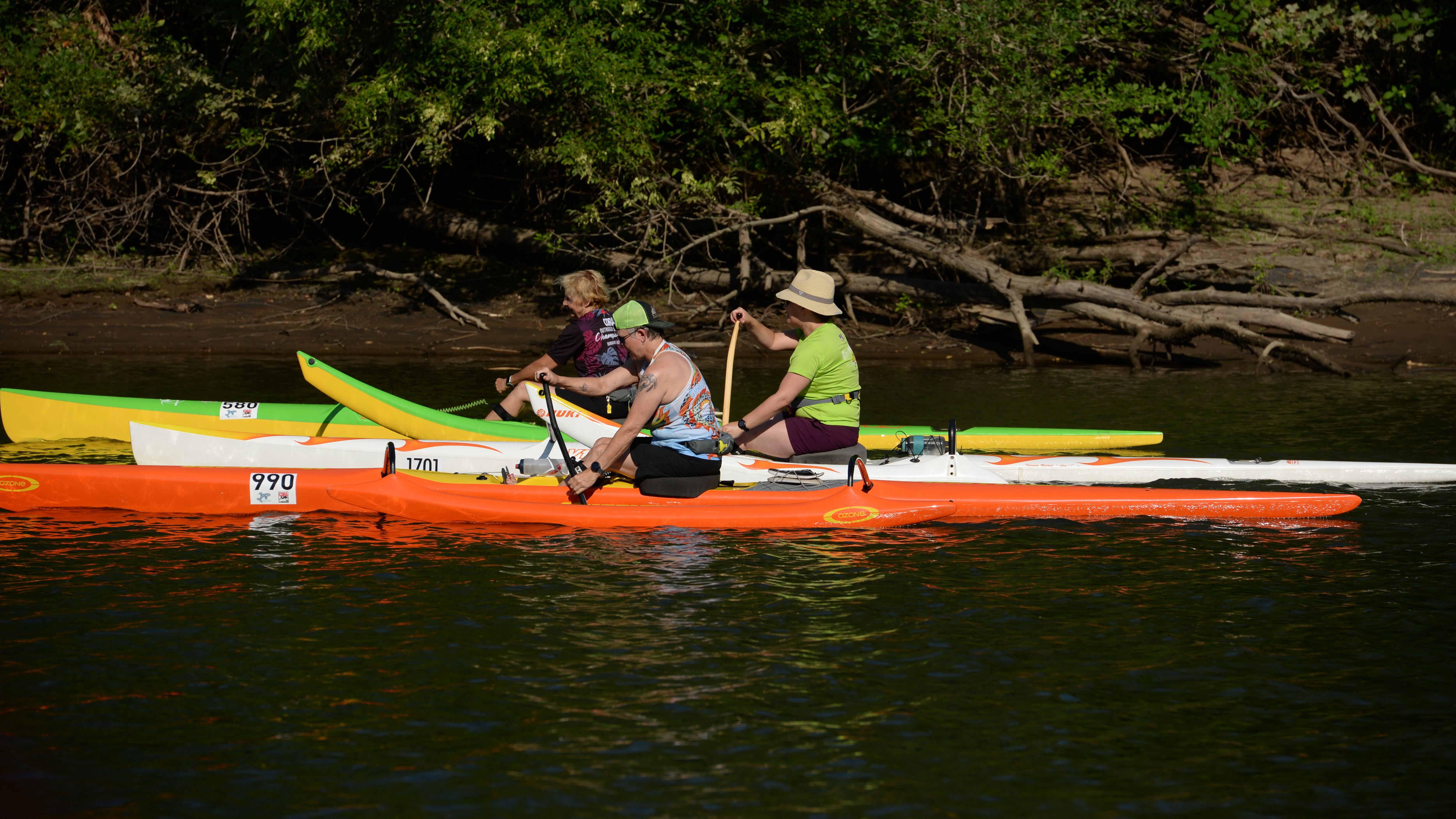Advocates with Willamette Riverkeeper are calling on the R.B. Pamplin Corp. to sell or donate Ross Island to the public.
“We think now’s the time for ownership to change,” says Travis Williams, executive director of the environmental nonprofit.
The proposal to transfer 110 acres of the Willamette River island comes after an algae bloom last month that turned Portland’s central waterway neon green and made it too toxic for recreation. The blooms grow out of the stagnant water in Ross Island Lagoon, dug out over decades by Pamplin’s gravel mining operation. Some conservationists have argued the solution is a flushing channel that would let a current flow freely through the lagoon (“Hotseat: Willie Levenson,” WW, Aug. 23).
Williams and others contend that such a project needs to be integrated into a larger vision for Ross Island’s future that could be realized by Pamplin selling or donating Ross Island to a public entity, such as Portland Parks & Recreation or the regional government Metro.
“You have this incredible natural area, dead center of the city of Portland,” says Bob Sallinger, urban conservation director for Willamette Riverkeeper. “It is degrading in a lot of ways. You have significant amounts of camping on boats around the island. You have invasive species, erosion and a need for habitat restoration. What is the plan for this amazing asset?”
Mike Houck, director emeritus and founder of the Urban Greenspaces Institute, who has been working to protect Ross Island for four decades, also voiced support for the proposal.
Negotiations for a sale could be delicate. What’s at stake is both the holdings and civic legacy of Dr. Robert Pamplin Jr., owner of a textile, mining and publishing empire that includes the Portland Tribune newspaper.
In 2007, Pamplin donated 44.83 acres of Ross Island—nearly a third of the landmass, as shown on the map below—to the city parks bureau, which maintains it as a wildlife sanctuary with limited access to the public. (The Port of Portland owned the island’s northern tip but donated it to the parks bureau in 2015.)
But persuading Pamplin to fork over the rest could be complicated by the unusual real estate transactions that WW has documented over the past two years, which included Ross Island Sand & Gravel selling the island to its employee pension fund in 2022 (“Fantasy Island,” WW, March 9, 2022).
A representative of R.B. Pamplin Corp. did not respond to WW’s inquiry whether Pamplin would be open to a conversation about selling or donating the island. Williams says Willamette Riverkeeper contacted Pamplin executives last month but didn’t hear back.
Another question is which government would buy the land. The city already owns some, but Metro won voter approval for a $475 million bond to fund greenspaces in 2019.
City Commissioner Dan Ryan, who oversees the parks bureau, tells WW: “Portland Parks & Recreation communicates regularly with Pamplin in regards to the Ross Island site the bureau is currently leasing. There are no formal conversations occurring with Pamplin about a land transfer, but PP&R is always open to discussing the protection of the community’s natural areas.”
“Ross Island is part of a priority habitat area identified in the bond, so of course we would be open to a conversation,” says Metro parks and nature spokeswoman Hannah Erickson. “But it is important to understand that not every conversation turns into a purchase.”
Williams says if no public entity wants to own Ross Island, Willamette Riverkeeper would be willing to. “We are aiming for a natural area with a relatively small area for people to visit,” he says. “Our biggest priority is protecting the island and its habitat.”
Correction: This story incorrectly said the Port of Portland owns the island’s northern tip. The port donated the land to Portland Parks & Recreation in 2015.

